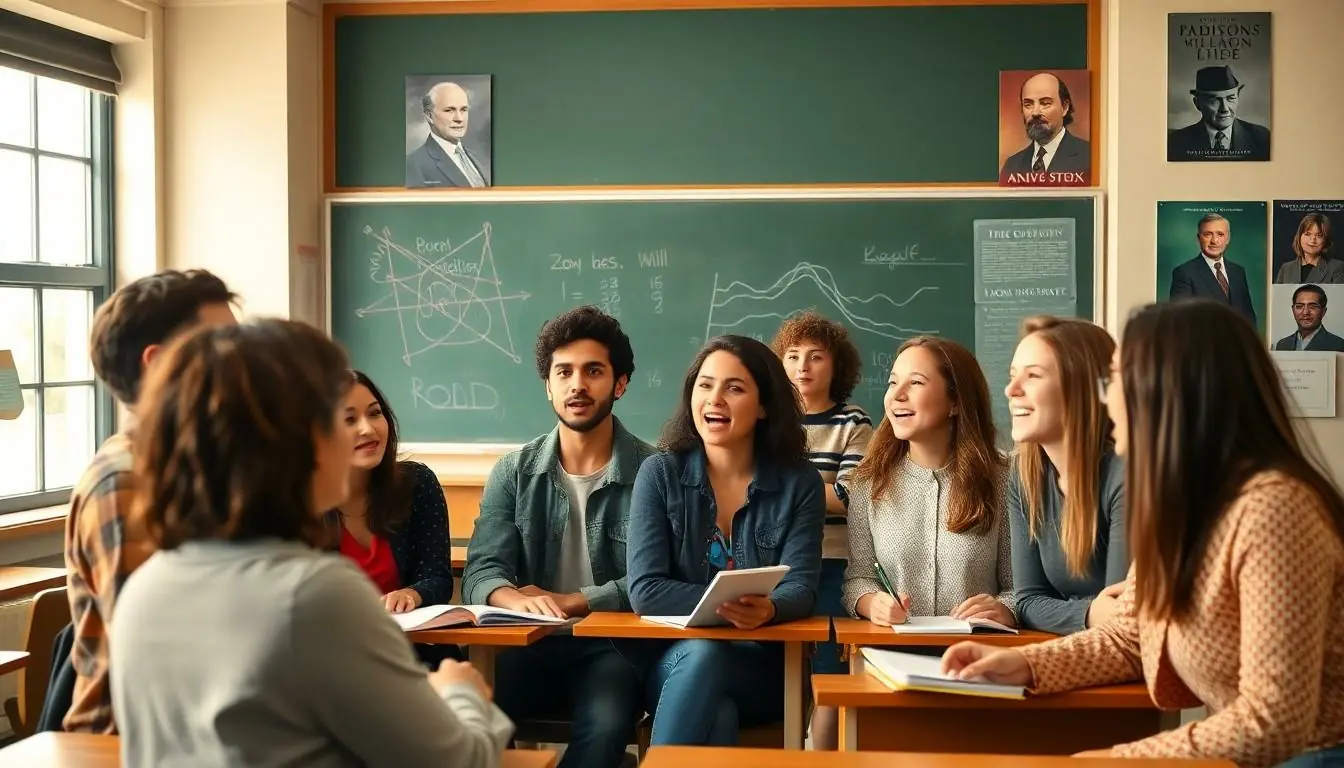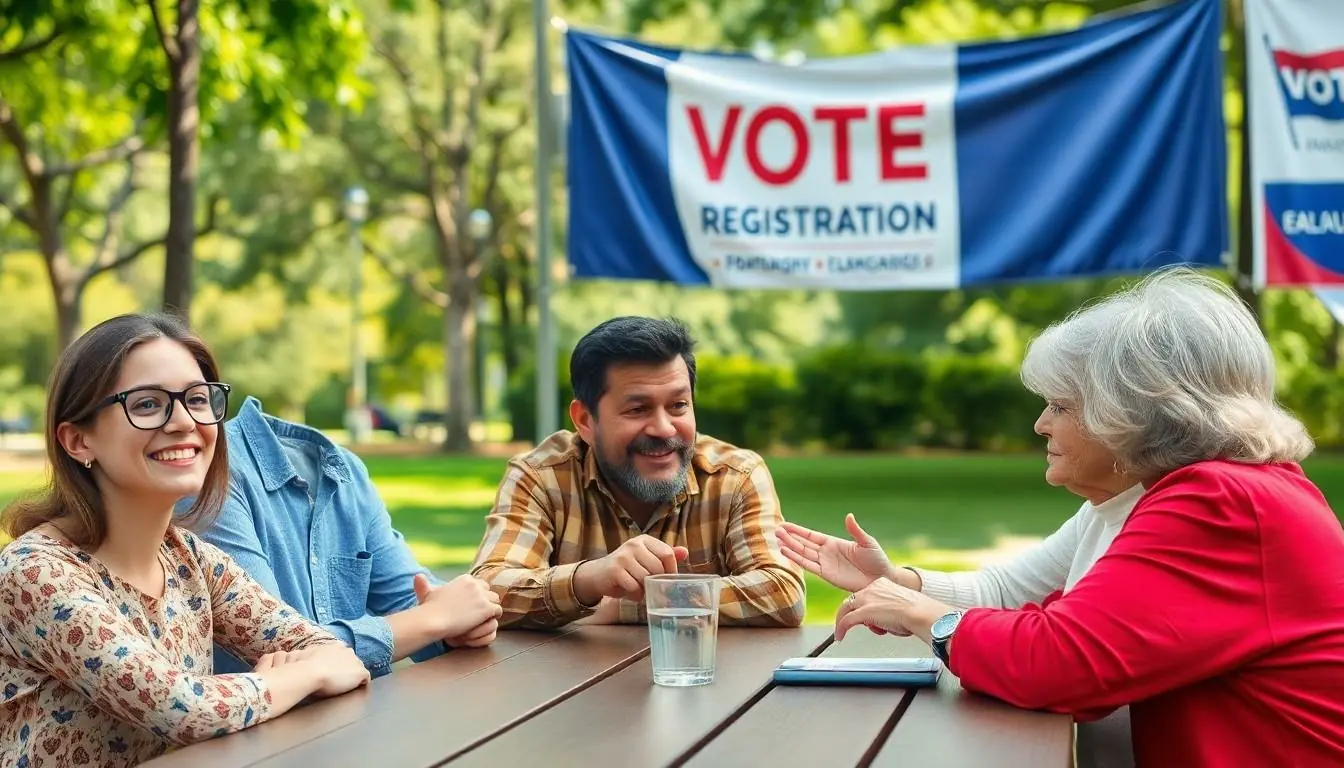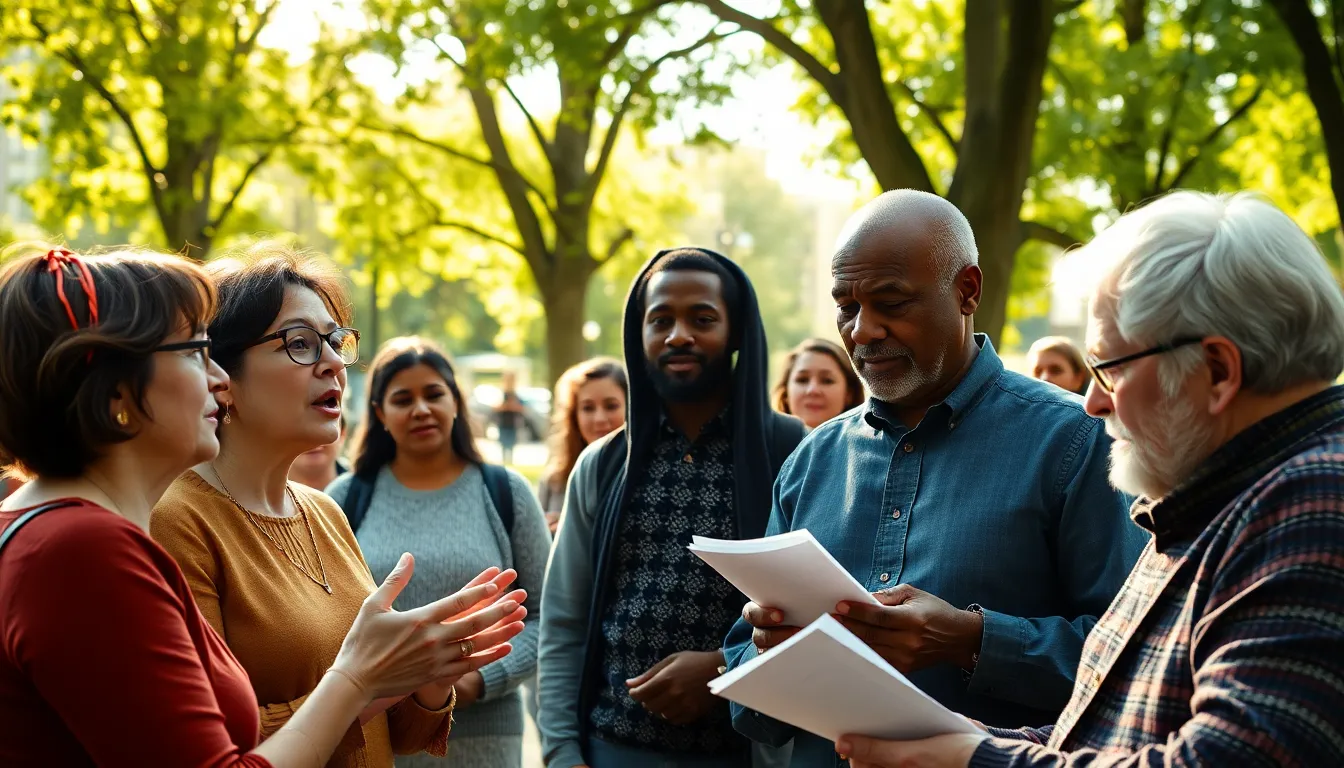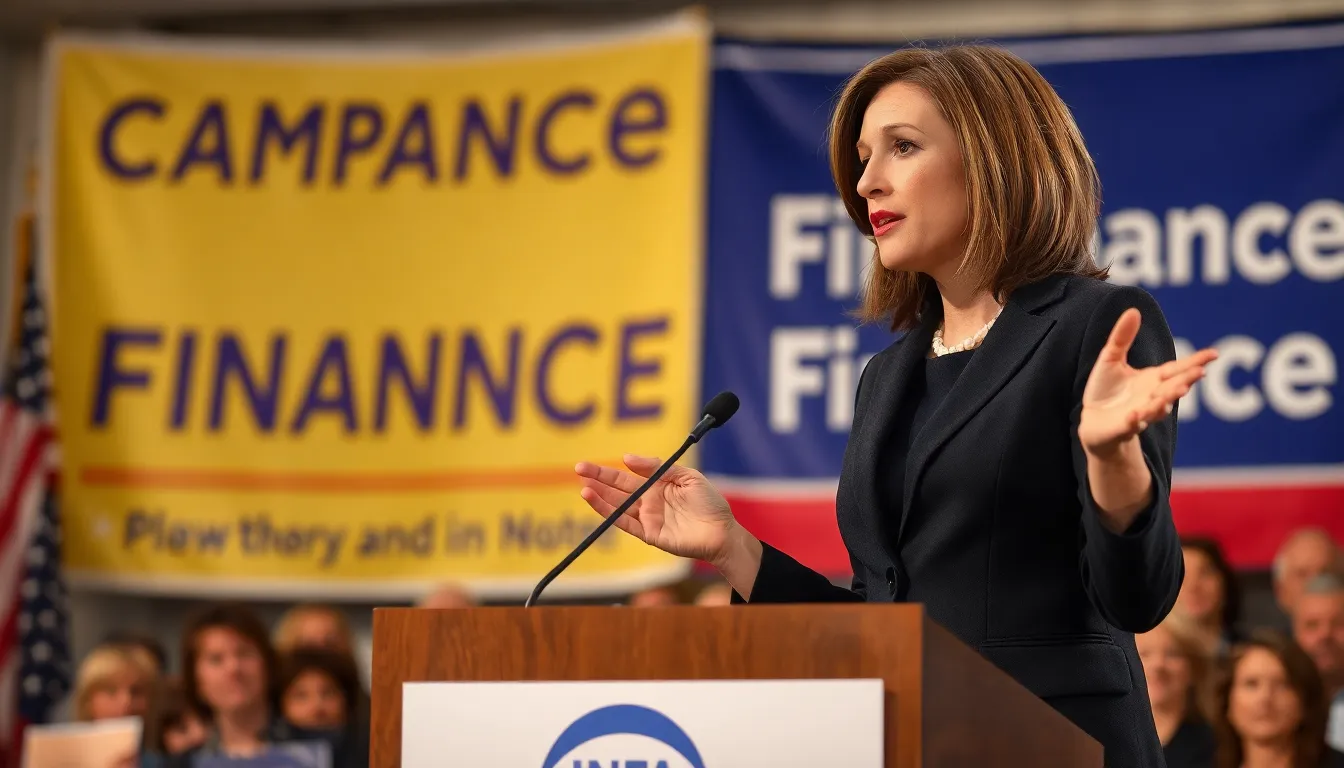Political socialization is like the secret sauce that shapes our beliefs, values, and political opinions. From the moment someone hears their first political debate or gets roped into a family dinner argument, they’re on a wild ride of influence. Friends, family, media, and even that one quirky neighbor who insists on sharing his views about everything play a pivotal role in this process.
Table of Contents
ToggleUnderstanding Political Socialization
Political socialization significantly influences the formation of beliefs, values, and political opinions throughout a person’s life. Various factors play a key role in shaping these perspectives.
Definition of Political Socialization
Political socialization refers to the process through which individuals develop their political beliefs and attitudes. Experiences from family interactions, educational environments, and peer influences contribute to this formation. Additionally, media exposure and cultural factors help cultivate a person’s political identity. As individuals grow, they incorporate these influences into their political perspectives, leading to a unique understanding of political structures and ideologies.
Importance in Society
Political socialization holds immense importance in society as it fosters informed citizenry. It shapes public opinion, influencing participation in elections and civic engagement. Through socialization, individuals gain insights into political processes, which can lead to greater involvement in democratic practices. Diverse perspectives from various socialization sources encourage healthy discourse, promoting tolerance and understanding among different groups. Ultimately, the collective impact of political socialization strengthens democratic institutions and enhances social cohesion.
Agents of Political Socialization

Political socialization stems from various key agents that shape individuals’ political beliefs and values. These agents significantly influence political perspectives throughout a person’s life.
Family Influence
Family serves as the primary agent in political socialization. Parents often impart their political ideologies during discussions or through modeled behavior. Children observe family members’ political actions and interactions, which helps establish foundational beliefs. Shared values and traditions strengthen political identities within families. This early influence tends to persist into adulthood, and many individuals align their political views with those of their families.
Educational Institutions
Educational institutions act as crucial sites for political socialization. Schools introduce students to civic education, teaching them about government structures and democratic processes. Teacher perspectives and classroom discussions further shape political understanding. Engagement in debates and extracurricular activities fosters critical thinking and encourages diverse viewpoints. As students interact with peers, they also encounter differing beliefs, allowing them to reassess their own political identities.
Media Impact
Media plays a significant role in shaping political views. News outlets, social media, and other platforms provide information on current events and political issues. Exposure to various media sources influences perceptions and opinions. Individuals often form beliefs based on narratives presented by journalists and commentators. Media also offers a space for discussion and debate, encouraging active engagement with political topics.
Social Groups and Networks
Social groups and networks contribute to political socialization through shared experiences and conversations. Peer influence often impacts political beliefs, particularly among younger individuals. Involvement in community organizations, activism, or clubs encourages dialogue and fosters a sense of belonging. Relationships with others create environments to exchange ideas, which can lead to shifts in political attitudes. These connections may reinforce or challenge existing beliefs, shaping political identities in the process.
Stages of Political Socialization
Political socialization occurs over different life stages, shaping individuals’ beliefs and opinions through various influences.
Childhood and Adolescence
In childhood, family significantly shapes early political views. Parents introduce their political ideologies through discussions and everyday interactions. Schools provide context, allowing children to engage in civic education. Peer interactions during adolescence challenge and refine these beliefs, as kids begin to form independent thoughts. Exposure to current events through media enhances understanding and prompts critical thinking among youths.
Adulthood
Adulthood brings new influences that further mold political views. Individuals often align with like-minded social groups, which amplify shared beliefs. Work environments can stimulate political discussions, adding layers of perspective. Media consumption shifts, as adults are more selective in sources, shaping their political stance. Participation in community events fosters a sense of civic duty, influencing overall engagement in political processes. Events like elections further motivate individuals to reassess and solidify their beliefs.
Lifelong Process
Political socialization remains a lifelong journey. New experiences continuously contribute to evolving beliefs as individuals encounter diverse perspectives. Life transitions, such as marriage or parenthood, often trigger reassessment of political values. Engaging in ongoing education, including workshops and discussions, can deepen understanding and challenge prior assumptions. Regular exposure to different media fosters an adaptive mindset towards political matters. Each stage offers fertile ground for growth and change in one’s political identity.
Theories of Political Socialization
Several theories explain the mechanisms of political socialization, highlighting the various factors that shape individual political beliefs.
Behavioral Theory
Behavioral theory emphasizes observable behaviors and actions in political socialization. This perspective suggests that individuals learn political norms through reinforcement and punishment. For example, participation in civic activities often leads to positive reinforcement, while non-participatory behavior may result in feelings of isolation. Scholars argue that political engagement is cultivated through direct experiences, such as community involvement or voter outreach programs. Furthermore, behavioral patterns arise from interactions with peers and family members, solidifying political preferences. Overall, this theory focuses on how behaviors directly influence political identity.
Cultural Theory
Cultural theory explores how culture significantly influences political socialization processes. Cultural elements, such as traditions, values, and historical narratives, shape individuals’ worldviews. Shared cultural backgrounds lead to group identities that affect political beliefs and affiliations. For instance, individuals raised in specific cultural settings often internalize the prevailing political ideologies. Additionally, cultural rituals and celebrations reinforce political participation and community engagement. Ultimately, cultural theory connects the dots between collective identity and political opinions, emphasizing the importance of cultural context in shaping political socialization.
Political socialization plays a vital role in shaping individual beliefs and societal dynamics. It’s a continuous journey influenced by family, education, media, and social interactions. This process not only molds personal political identities but also impacts civic engagement and public discourse. Understanding the complexities of political socialization can empower individuals to critically evaluate their beliefs and foster a more informed citizenry. By embracing diverse perspectives, society can strengthen its democratic foundations and promote healthy political dialogue. Recognizing the importance of this ongoing process is essential for nurturing active and engaged citizens.



